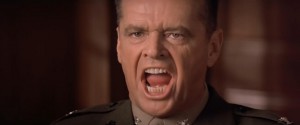If you want to be a successful actor, there are a few things you need to master. First and foremost is your monologue. A monologue is a speech that is given by an individual, typically in a dramatic play. It can be any length, but ideally should be no shorter than 8 minutes and no longer than 20 minutes.There is definitely an art to monologuing.
There are a few tricks to capturing and holding the attention of an audience via a monologue. This means speaking without interruption, allowing the audience to get lost in your words. Another way is to use visual elements, like props or costumes, to draw attention to specific points you’re making. And finally, always be aware of your surroundings and make sure your speech flows naturally from one point to the next.
In order to give your monologue the best chance of success, there are some things you need to keep in mind.
Start by thinking about what type of monologue you want to perform.
There are many different types of monologues, so it’s important to choose one that will fit your personality and the scene you’re performing in.
There are three main types of monologues: exposition, argument and confession. Exposition monologues are used to introduce the characters, setting and plot of a play. Argument monologues are used to develop the characters’ arguments and motivations for their actions. Confession monologues are used to reveal the character’s thoughts and feelings about themselves and their circumstances.
Check out Viggo Mortensen’s The Lord of the Rings: The Return of the King – Aragorn’s Battle Speech Monologue
Find a character who embodies that type of monologue. This could be a historical figure, a famous author, or even something fictionalized (like a superhero).
Finding the right character to embody a monologue can be a challenging task for any actor. However, with a little bit of research and preparation, you can find the perfect persona to help carry your speech.
One way to find the perfect character is to look at the speech as if it were written specifically for that person. This means taking into account their tone of voice, body language, and even personal habits. Once you have a general idea of who the character is, you can begin your search for an actor who closely resembles them.
You can also choose to use casting agents or agencies that specialize in finding unique and interesting characters for roles. These professionals will be able to help you find someone who is perfect for your desired role.
 Watch Taraji P. Henson’s Monologue in the 2016 Oscar-nominated film Hidden Figures – To the Bathroom
Watch Taraji P. Henson’s Monologue in the 2016 Oscar-nominated film Hidden Figures – To the Bathroom
Think about what that character would say or do in a given situation.
In any given situation, a character would likely say or do something based on their personality and actions taken in the past. In some cases, this might mean simply reacting to the current situation. Other times, it might mean taking action based on what they believe is best for themselves or others. Regardless of the specifics, each scene is full of potential dialogue and interaction between characters.
Here are some examples:
A character who is typically calm and collected might become upset and frustrated when their plans are disrupted. They might lash out at those responsible or try to take matters into their own hands.
A pacifist would likely refuse to fight when attacked, even if it means being captured or killed. They may try to convince their attackers to spare them or escape.
A self-righteous bully would likely be outraged when challenged or confronted by someone weaker than them.
Practice your lines out loud before performances.
It’s important to practice your lines out loud before performances in order to ensure that you sound authentic. By doing so, you’ll not only feel more confident on stage, but also improve your overall acting skills. Additionally, by rehearsing your lines in front of a mirror or another person who will critique your performance, you’ll be able to identify any errors or problems early on and correct them.
Use your performance as a tool for improvisation and discovery.
Improvisation can be a tool for acting and discovery. The process of improvisation is to create scenes, characters, and conversations spontaneously on the spot. This allows actors to explore their own thoughts and feelings, as well as those of their character. It also allows them to test out different ideas and find new ways to approach a scene.
This process can be used in many areas of life. For example, it can help you think more creatively when problem solving or when trying to come up with new ideas. Improvisation can also help you learn new things quickly. For example, if you are studying for an exam, you can use improvisation to practice answering questions without knowing the answers in advance.
The key is not to get too bogged down in the details of each improvisation session.
*****
As an actor, it is important to have a repertoire of great monologues. This can be anything from speeches in a play to a personal confession.
 See Jack Nicholson’s Monologue in A Few Good Men – You Can’t Handle the Truth
See Jack Nicholson’s Monologue in A Few Good Men – You Can’t Handle the Truth
Here are tips on how to find and perfect your own great monologue:
1. START by clicking on DirectSubmit from NYCastings Monologue section. Here you will find a myriad of different monologues for all types of people and ages.
If you’re a teen, you can find even more monologues by clicking HERE.
2. Find something that you are passionate about. This will foster the need and want to perform your monologue well. When you are invested in what you are saying, it will show on stage.
3. Get feedback from others who know what they are talking about. Ask friends or family if they have any suggestions for good monologues or speeches you could use as models.
4. Read as much as possible about different types of monologues and speeches. This will give you a better understanding of the structure and how best to deliver your message.
Monologues provide an excellent opportunity to entertain an audience. By using satire and humor, you can keep them engaged and interested. Additionally, by varying your delivery, you can make each monologue unique and memorable. As a performer, use these tips to keep your audience entertained and coming back for more!







